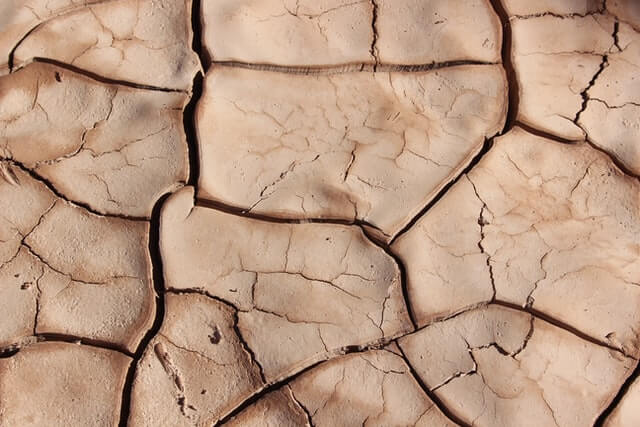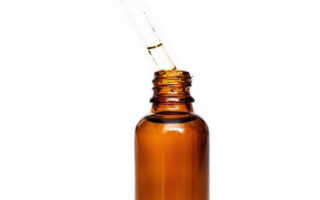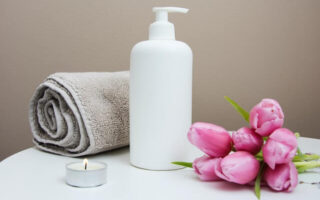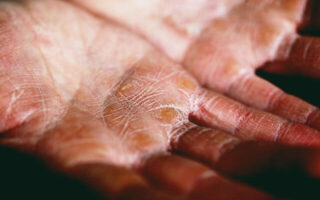Millions of people suffer from dry skin, a condition that can be caused by various factors, including genetics, age, climate, and environment.
Dry skin can lead to itchiness, irritation, and flaking. It’s also the most visible sign of dehydration in your body. Your body loses water through respiration, sweat, and urination, which can leave you feeling dry all over.
While there are many commercial products available to treat dry skin, luckily, there are some simple home remedies for dry skin that will help get rid of this annoying issue.
Home remedies can be just as effective as commercial products, and they often cost less.
This article will explore some of the most popular home remedies for dry skin.
List of Home Remedies for Dry Skin

Read our blog post on Lip Care Routine!
Follow the following home remedies to treat your dry skin.
1. Drink plenty of water
Drinking plenty of water throughout the day will help keep your skin hydrated and healthy. It also helps your body to expel toxins. It’s essential during summer when the heat can cause increased sweat production, leading to dry skin and acne breakouts. Add a slice or two of lemon to your glass if you like. In addition, it will add flavor and increase the amount of Vitamin C in your drink, which helps with collagen production and skin repair.
2. Apply moisturizer to your skin
When your skin becomes dry, it may flake or peel, leading to fine lines and wrinkles. This is especially true if you are in the sun for extended periods since the sun’s rays can dehydrate your skin. A quality moisturizer will help keep your skin hydrated. Look for products labeled as non-comedogenic or non-acnegenic, which means they are less likely to cause breakouts.
3. Use coconut oil
Use coconut oil on your dry patches of skin to rehydrate it quickly, which should prevent peeling and flaking. The fat content in coconut oil will help trap moisture and prevent the loss of more. It also contains antibacterial properties, stopping bacterial growth and infection of any cuts or wounds on your skin.
4. Try an exfoliating scrub
Try an exfoliating scrub with gentle ingredients such as sugar, honey, and oatmeal to remove dead cells from the surface of your skin. The exfoliation process is important since it removes dead cells that can build up and create a barrier over your skin which traps in dirt, bacteria, and the oils that they produce. As a result, your pores become clogged, which can cause breakouts in some cases. Exfoliating will also help lift off any makeup residue left on your face from the day.
5. Avoid using harsh soaps
Soaps can strip away natural oils in your skin and make it more susceptible to dryness. Choose milder products instead to avoid dry skin and acne breakouts. Even better, use a face wash designed for sensitive skin types since they will be free of fragrances and other harsh chemicals. You can also try using a cleansing oil instead if you have normal to oily skin.
6. Use a humidifier in your home for moisture
Use a humidifier in your home to add moisture to the air. This is important during winter when the heat can cause the air to become dry. A humidifier will help prevent your skin from drying out, and it can also help relieve congestion if you are suffering from a cold or the flu. Keep indoor humidity levels at 50% or higher by opening windows when possible and adding moisture via humidifiers (or boiling water) during winter months when outdoor air is drier.
7. Apply aloe vera on your skin to hydrate it
If you don’t have a moisturizer handy, apply aloe vera gel directly to the affected area of your skin. The cooling sensation from aloe can quickly soothe dry, irritated areas and reduce redness. Aloe also has antibacterial properties, protecting open wounds from bacteria and stopping infection.
8. Apply petroleum jelly to lock in moisture overnight
Petroleum jelly is a mineral oil derivative used to moisturize and protect the skin from dryness. It is effective because it forms a barrier on the skin’s surface that traps moisture and prevents it from evaporating. Apply petroleum jelly every night before bed to lock in moisture overnight.
9. Avoid hot showers/baths
Hot water can strip away natural oils in your skin and make it more susceptible to dryness. Lukewarm water is the safer option since it won’t dehydrate your skin. You can also try adding moisturizing oils to your bath water to help seal in moisture.
Conclusion
Dry skin is a common problem that can be annoying, uncomfortable, and even painful. Luckily, you can use these home remedies to treat your dry skin, so it doesn’t interfere with your life. The best thing about these treatments is they don’t require any special ingredients or equipment, just the items found in most homes!
Dry skin can be a nuisance, but it’s thankfully easy to treat with some simple home remedies.
Try a few of these remedies to see which work best for you.
Also, be sure to check out our “Is Vaseline Better Than Chapstick?” article to find out which is the right product for you!



